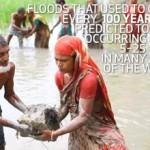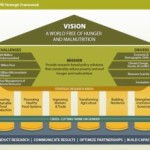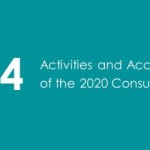Resilience, a term once reserved for such fields as ecology and psychology, is now being referenced in international development circles. Does it add anything new and useful to development theory and practice or is it simply more jargon? IFPRI senior research fellow John Hoddinott prefaces his conference brief with a definition of resilience in the context of development. Of the many definitions that exist, they share some common elements among the various fields. They all emphasize that resilience relates to an ability to respond to transitory adverse events (shocks) or more persistent trends (stressors). In addition, they all place greater emphasis on potential long-term adverse consequences of shocks. Based on these common features, Hoddinott and fellow researchers defined resilience in an earlier paper as “the capacity that ensures adverse stressors and shocks do not have long-lasting adverse developmental consequences.” With such a definition in place, what are the implications for measuring resilience as well as for designing and implementing policies that help poor people and communities build resilience? Hoddinott says that measures of resilience must distinguish between the pre-shock capacity of resilience and the post-shock path of the outcome (such as nutrition and food security). Unfortunately, such measures are still in their infancy and improving them poses several challenges. For starters, resilience capacities are highly context-specific. For example, a rural household dependent on farming income versus one dependent on salaried government income will be affected differently by a climatic or governance shock.Moreover, while much research on resilience focuses on levels of assets, it must also consider the returns. In the context of the economics of famines, a focus on assets (land) can ignore such non-market entitlements as aid, welfare transfers and the social relationships between households that contribute to resilience. In terms of policy, resilience has evolved from a conceptual construct to an organizing framework that incorporates development and humanitarian efforts. As such, there are advantages to broadening its scope to examine food security and nutrition through a resilience lens. In order to succeed, development efforts must pay attention to systems and not just individuals. An approach to development grounded in resilience should increase focus on systems, particularly governance, with the understanding the systems do not work in isolation. According to Hoddinott, “increased attention to resilience implies thinking holistically about development interventions.” In focusing include long-term consequences of shocks and stressors, efforts aimed at building resilience are shown to be particularly important for addressing chronic undernutrition. For instance, research evidence shows that civil war and drought have effects not only on pre-school children’s nutritional status but also into adulthood. Children in households with greater levels of resilience, meanwhile, will be better nourished and schooled. As adults, they will likely be more resilient to shocks and stressors that they face. As Hoddinott notes, this promotes sustainability and “creates a virtuous circle of development.”





